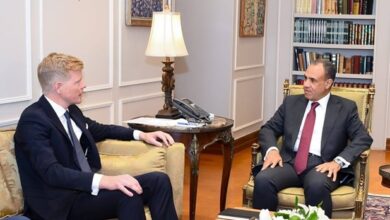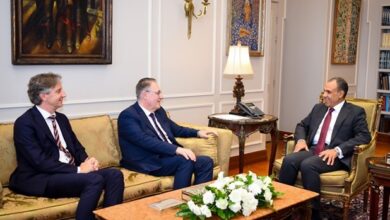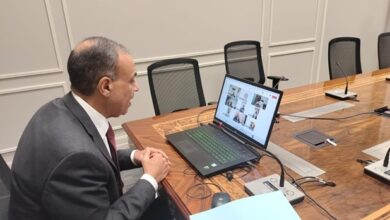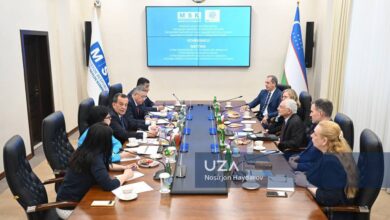
The Exe cutive Council’ proceedings of the 44th Islamic Educational, Scientific and Cultural Organization (ICESCO) were successfully concluded in Jeddah on Thursday, setting the path for fostering global collaboration and innovation in the realms of education, science, and culture. The outcomes of the conference are poised to shape the future trajectory of the organisation.
The Saudi National Committee for Education, Culture, and Science (NCECS), representing the Kingdom in the event, announced that the Kingdom of Saudi Arabia submitted its bid to host the 15th session of the ICESCO’s General Conference, the organisation’s top governing body, scheduled in 2025.
As of next year, the Kingdom will be granting 200 scholarships in Saudi universities to talented students across the Arab and Muslim countries, according to the secretariat general of NCECS.
During The 44th meeting’s inaugural ceremony, guests were treated to a comprehensive cultural experience, with the highlight being the “Caravans” artistic performance. It showcased the cultural aesthetics embedded in the historical Hajj pilgrimage routes converging in Mecca. The performance shed light on the pivotal role of the Two Holy Mosques in embracing and promoting the oldest and grandest manifestation of cultural exchange, knowledge enrichment, and humanitarian interaction in history.
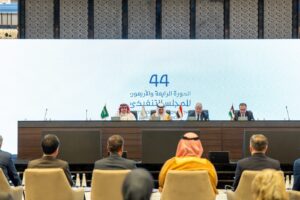
The ceremony also featured a camel procession, aligning seamlessly with the announcement by the Ministry of Culture of the “Year of the Camel 2024.” This designation is a tribute to the cultural and historical significance of camels in the lives of the Kingdom’s inhabitants from ancient times to the present. It underscores their deep-rooted importance in both Arab and Islamic cultures, emphasizing their profound impact on human development culturally, economically, and intellectually throughout successive eras. The camel caravans, alongside goods and commodities, have always carried values, knowledge, and ideas.
After that a captivating welcome function was organised in the enchanting historical district of Jeddah, a locale proudly listed on the UNESCO World Heritage roster, attended by His Highness Prince Saud bin Abdullah bin Jalawi, Governor of Jeddah.
The NCECS’s Secretary-General, Ahmed bin Abdulaziz Al-Bulahid said: ‘The Kingdom is fervently committed to enriching global education and knowledge domains, aligning with the visionary Saudi leadership’s commitment to supporting ICESCO endeavours on all fronts.’
The proceedings of the Executive Council’s commenced with addresses by Salem bin Mohammed Al-Malik, the Director-General of ICESCO; Mohamed Ayman Ashour, the Minister of Higher Education and Scientific Research in Egypt and the President of the General Conference of ICESCO; Duwas Taysir Duwas, the Chairman of the Executive Council of ICESCO and the Secretary-General of the Palestinian National Committee for Education, Culture, and Sciences; and Mr. Ahmed bin Abdulaziz Al-Blaheed, the Secretary-General of NCECS. Also present were several ambassadors and distinguished guests, contributing to the richness of the opening session.
Following the inaugural session, the meeting transitioned into working sessions where the concerned divisions of ICESCO gave presentations on the programs and projects implemented throughout the current year, along with their future plans for the upcoming year. These sessions were marked by lively discussions and contributions from council members, who engaged in thoughtful deliberations on the documents and plans presented by the organization’s General Directorate.
The executive report on ICESCO’s activities for the year 2023 together with the financial reports for 2022 and the proposed action plan and budget for the years 2024-2025 were rubberstamped. Also, a report on member countries’ contributions for the year 2022, as well as a collection of administrative and legal proposals were endorsed. This comprehensive review and approval process underscored the commitment to transparency and accountability within the organization.
In addition, an agreement was signed between NCECS and ICESCO on the executive plans for the Kingdom’s ‘Hajj Pilgrimage Routes & Historical Mosques Programme.’
The agreement aims at reinforcing the cultural role of the religion of Islam, and cementing the stature of the Two Holy Mosques as a hub for world peace and cultures. It also defines the measures necessary to safeguarding the archaeological sites along the traditional routes of Hajj towards the holy city of Mecca (Makkah) as well as the historical mosques located in the organisation’s member states.
Under this programme, all historical mosques and agroecological sites will be duly recorded, catalogued and then inscribed on the ICESCO’s World Heritage Sites & Elements. This will boost and bolster the industries related to Hajj in different countries across the globe.
The terms of the agreement provide for cementing the status of the Hajj routes and historical mosques, and safeguarding their material and immaterial aspects, as they stand as original cultural and civilizational landmarks in the Islamic states they are located.
Highlighting the significant influence the Islamic civilisation has had on the global cultural landscape is also part of the agreement.
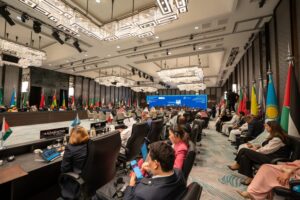
In the process, the Saudi Institute of Public Administration made a presentation with a proposal for a new regulatory organizational structure of ICESCO that goes in harmony with the organization’s new vision and strategic directions. This proposal encompasses the establishment of new divisions, reflecting a forward-looking approach to enhance the effectiveness and adaptability of the organisation to emerging challenges and opportunities.
The hosting of the ICESCO Executive Council’s meeting was made possible through the concerted efforts of the NCECS. This endeavour stems from the unwavering support and interest extended to the cultural sector by the Custodian of the Two Holy Mosques, King Salman bin Abdulaziz, and His Royal Highness Crown Prince Mohammed bin Salman; and under the guidance and supervision of His Highness, the Minister of Culture, Prince Badr bin Abdullah bin Farhan. It has played a pivotal role in cementing the Kingdom’s central role in spearheading international events and leading scientific development in the Arab and Islamic world.


